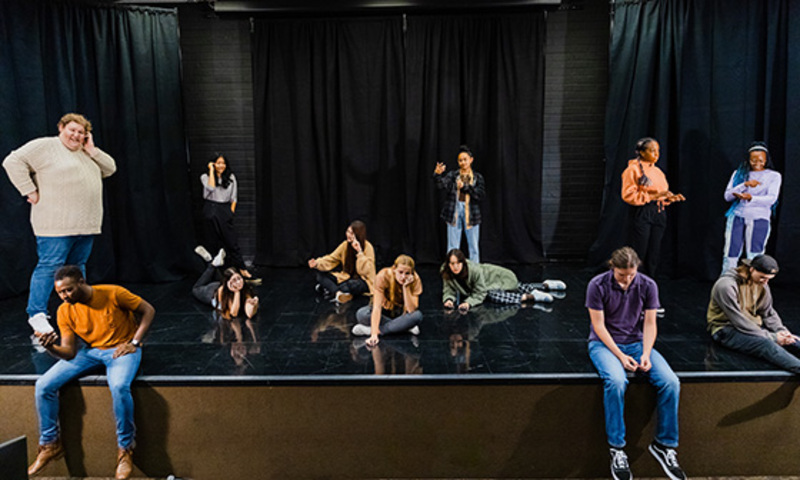One of the main facets of the theater are its communal and interactive aspects. When the pandemic hit, live theater performances were one of the first things to go, displacing thousands of stage actors and leaving theater seats empty for over a year. Biola University Theatre 21’s production of Dear 2020: A Process was a felicitous homage to the difficulties presented by the pandemic, and it provided a place for both actors and audiences to process the emotions tied to last year.
“COVID-19 has been an unprecedented time for our nation and collectively the world. Beyond the realities of living in and through a pandemic are the even harsher realities of what it has done to us as a people: emotionally, socially, psychologically, and spiritually,” said Zachary Bortot, artistic director of the Biola Theatre program in the School of Fine Arts and Communication.
Alumna, adjunct professor and director Rory Slater (’14) based the production on the work of esteemed actress and writer, Rhodessa Jones and the Medea Project, where Jones went into San Francisco Women's Prisons and used theater to create an environment where the women were empowered through play, as a launching pad for this devised piece of theatre, allowing participants to take part in a process of healing and rebirth. Biola’s production of Dear 2020: A Process was unscripted, allowing the 12 student performers the freedom to process last year in their own personal way.
“The 12 actors cast in this production were not the same people they were when they walked in on day one,” said Slater. “Each one to varying degrees grew not just as an actor, but as a person. Ultimately, what I saw realized on the stage with each actor was a powerful and vulnerable storyteller who was supported and empowered to share their unique and yet relatable experiences with an audience — a very brave thing to do!”
While working with the student performers, Slater noted the value of the Biola theater program and what it is teaching students.
“During their time at Biola, [students] are being equipped with a wide range of acting techniques, theories, and experiences. Specifically, providing various concentrations whether in stage and screen, production, or musical theatre the students are not only receiving general knowledge but specific knowledge to their skillset and passions,” said Slater.
The production of Dear 2020: A Process was meant not only to provide a space for the student actors to process the emotions tied to the difficulties of 2020, but also a place where the audience could experience a similar type of reflection.
“Each audience at Dear 2020: A Process was deeply engaged with the material and connected to each actor's story as they verbally or emphatically responded to what was being shared,” said Slater. “I see that people's longing for community combined with what the theatrical experience can provide. Theatre like no other art form provides a communal space that has been lacking since 2020.”
Biola’s B.A. in Theatre guides students to explore their abilities on and off the stage by offering the study and practice of acting and theories of how theatre functions and communicates. Students have numerous real-world learning opportunities to use the craft of acting to communicate messages to an audience who has come to witness entertainment, a spiritual message or consider an important societal issue.
“Beyond knowledge and skills, most importantly what the Biola theater program offers is an ability to unpack, explore, and own who they are as a Christian theater artist; to critically think through how and why their craft is glorifying to God and to wrestle with their own convictions and understandings before they go out into the world in their various pursuits.”
Learn more and apply to the Biola theater program. Learn more about the School of Fine Arts and Communication.
 Biola University
Biola University

.jpg)
.jpg)
_(1).jpg)
_(1).jpg)